If you’re planning to take the GRE (Graduate Record Examination) and wondering about the test dates, you’re in the right place! Whether you’re looking to take the GRE at home or at an official test center, it’s important to know when the test is available, how to register, and when is the best time to take it for your specific needs. Let's dive in!
Test Dates for Taking the GRE at Home
The good news for those opting to take the GRE from the comfort of their own home is that test dates and times are available almost 24/7. This flexibility is a major benefit, especially if you prefer to test during non-peak hours.
- Availability: Test slots are available early in the morning, all the way up to after midnight. Although you can often register for a slot just a couple of days in advance, it’s best to sign up a couple of weeks ahead to ensure you get the ideal time.
- How to Register: Simply create an account with ETS (Educational Testing Service), and confirm that at-home testing is available in your area. Note that if you're in Mainland China, additional procedures apply, so make sure to check the specific guidelines.
- Flexibility: The at-home GRE offers you the most flexible scheduling. You can take it almost immediately or at a time that fits your personal preferences. However, planning ahead is still crucial to secure your preferred time.

Test Dates for Taking the GRE at a Test Center
If you prefer to take the GRE at a physical test center, you’ll find over 1000 test centers in 160+ countries. But keep in mind that availability can vary significantly based on location.
- Test Center Availability: Some test centers offer the GRE almost every day, especially during peak times like summer. In contrast, other centers may only have a few test days per month. Major cities and university areas usually have more options, but availability in smaller or rural areas may be more limited.
- Advanced Registration: To secure your spot at a test center, it's recommended that you register 3-4 months in advance. In some locations, you may find test centers filling up quickly, especially for the most popular test dates or locations. If you’re aiming for a peak time (like summer), it’s even better to sign up 6 months ahead.
- China and Korea: In these countries, the GRE is available only up to three times per month, so plan carefully to secure your desired slot.
When Should You Take the GRE in 2025?
Your preparation timeline largely depends on when you plan to apply to graduate programs. Below are some general guidelines to help you plan.
- For Test Centers: Register at least three to four months before your desired test date. If possible, aim for six months in advance for the best flexibility and peace of mind. This allows you to choose a location and time that’s most convenient.
- For At-Home Testing: You have much more flexibility with at-home testing. If you need to take the GRE ASAP, you can often find an available slot with minimal waiting. But remember, early registration still offers better chances of getting your preferred time.
When to Take the GRE for Fall Application Deadlines (Fall 2025)
For programs with fall 2025 application deadlines, it's a great idea to take the GRE in the summer of 2025. Here's a general timeline:
- Winter: Focus on studying and preparing.
- Spring/Summer: Take the GRE! This gives you ample time for preparation, and if needed, time for a retake.
- Fall: Submit your applications!

By taking the test in the summer, you allow yourself at least 3 months of prep and enough time to focus on your application process.
When to Take the GRE for Spring Application Deadlines (Spring 2026)
For those aiming for spring 2026 admissions, you’ll want to aim for a late 2025 test date. This gives you:
- Fall: Begin studying.
- Winter: Take the GRE, and if necessary, retake it.
- Spring: Submit your applications.
Taking the GRE in late 2025 ensures that you have a buffer period for any unforeseen delays and allows you to retake the test if necessary before application deadlines.
How to Register for the GRE
Now that you’re clear on when to take the GRE, it’s time to sign up! Here’s a quick step-by-step guide on how to register for the test:
- Create an ETS Account: Go to the official ETS website to create an account if you don’t already have one.
- Choose Your Test Type: Decide whether you’re taking the GRE at home or at a test center.
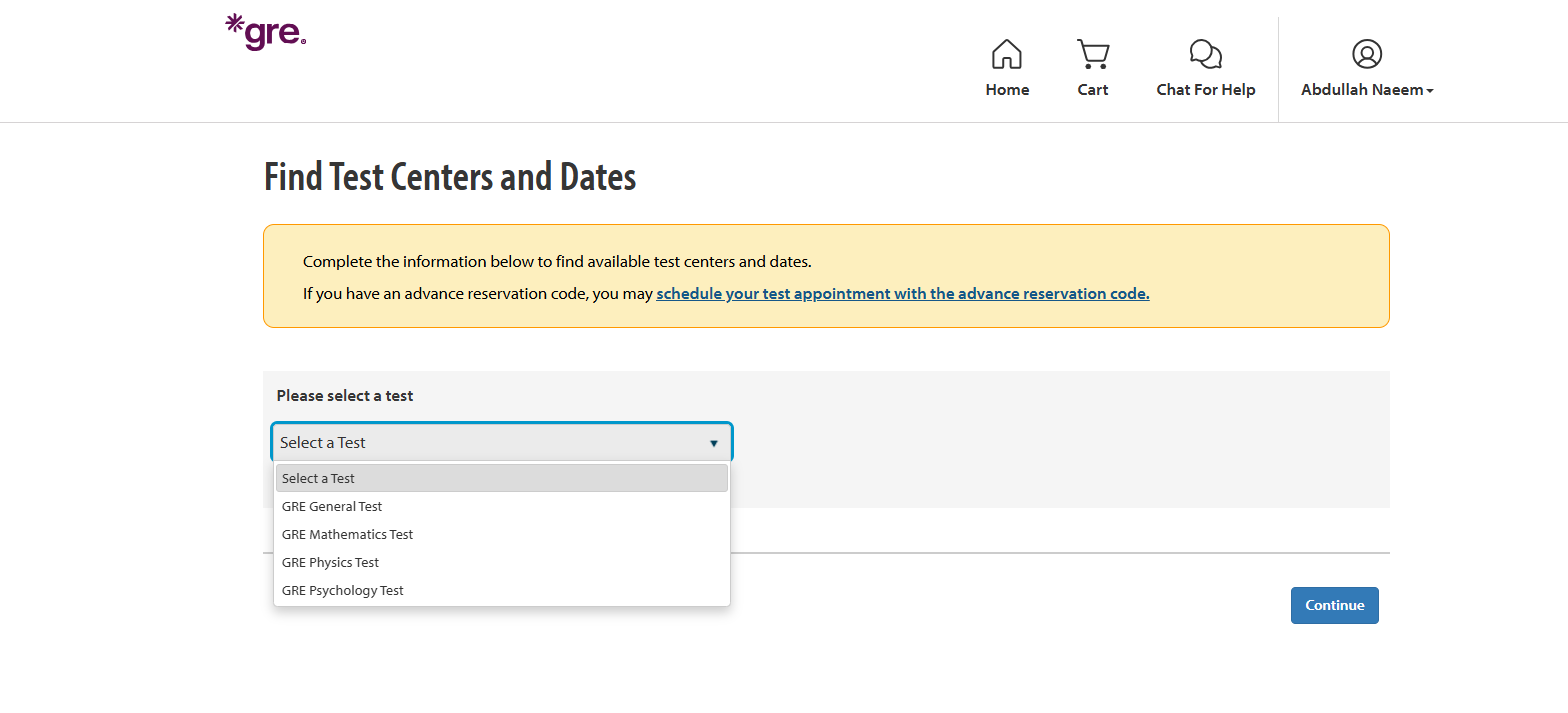
- Pick Your Date and Location: If you’re taking it at a test center, use the ETS website’s test center locator to find a nearby location and available dates. If you’re testing at home, choose a time that fits your schedule.
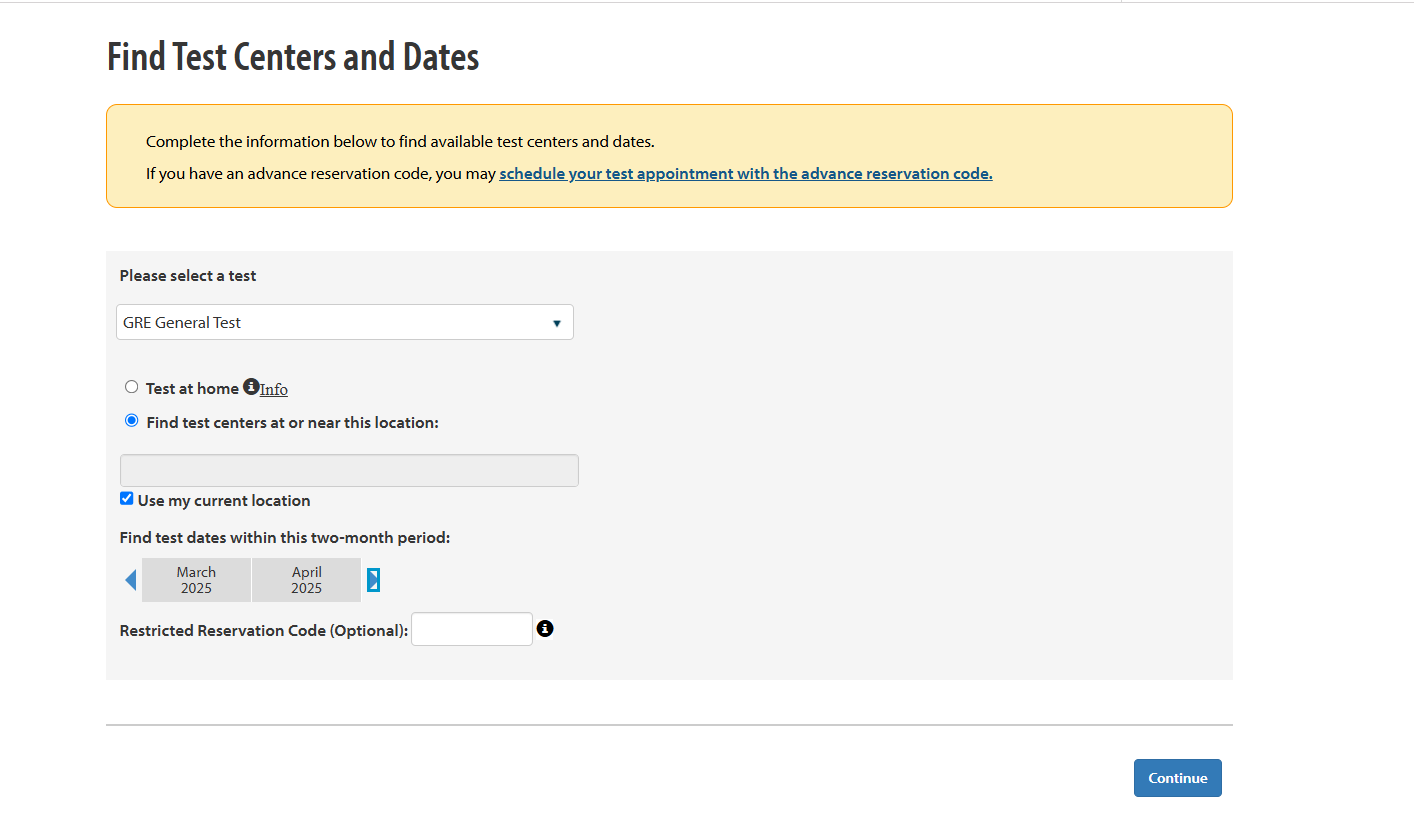

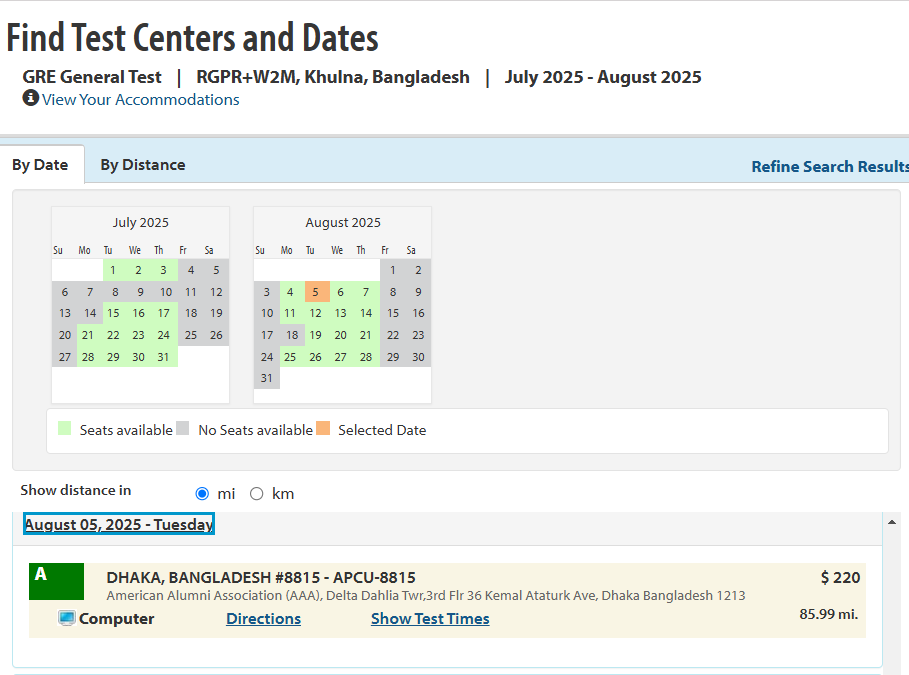


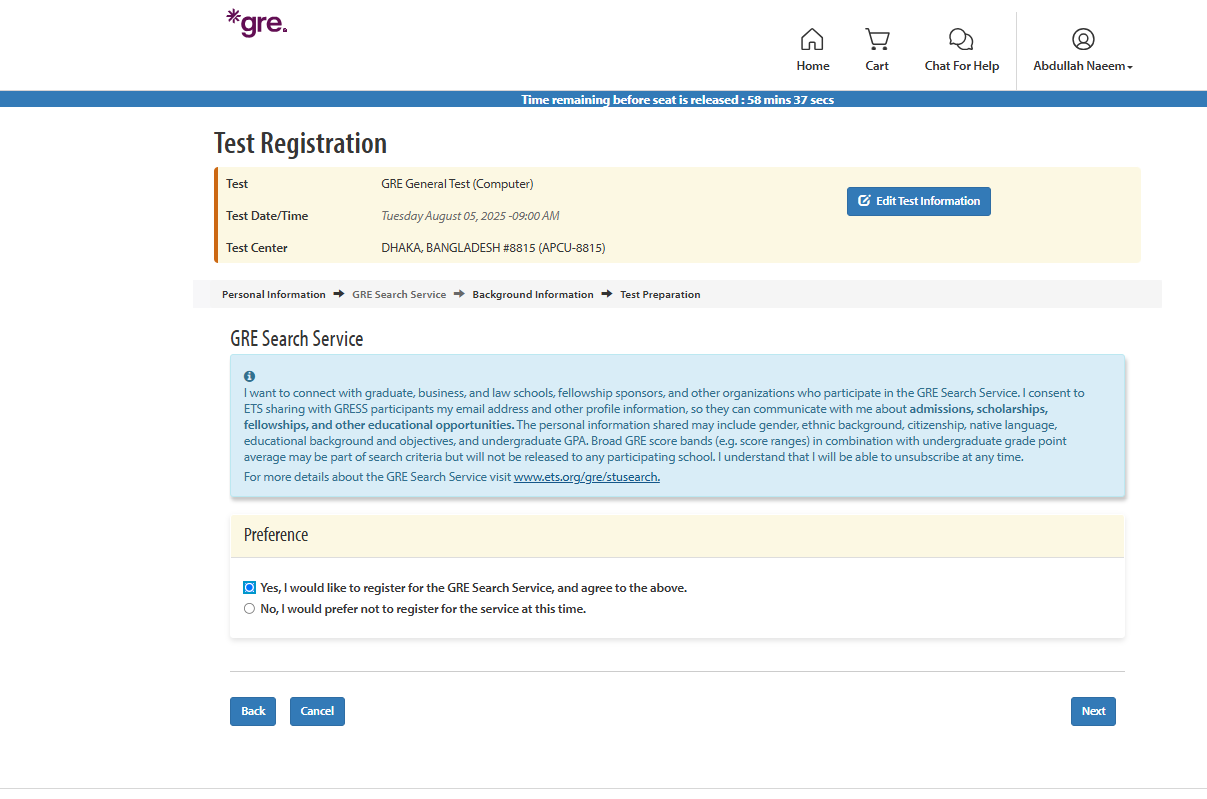
- Pay the Fee: For the GRE General Test, the standard fee is $205 (as of 2025), though fees may vary based on your location.
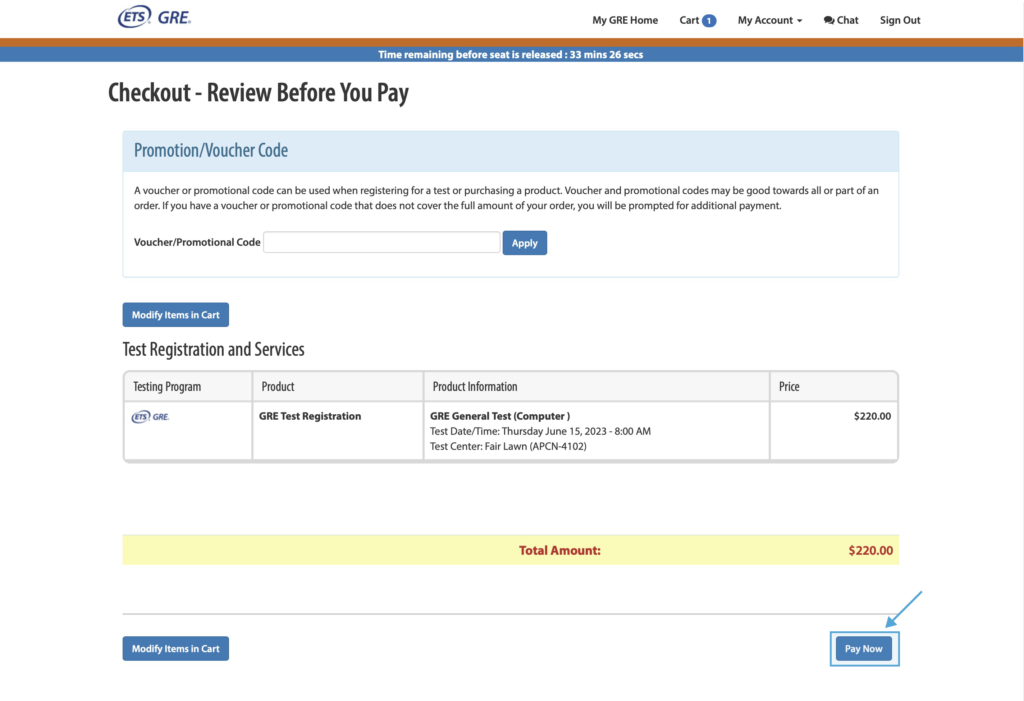

- Confirm Your Registration: Once you’ve selected your date and location, confirm your registration and get your confirmation email with all the details.
Frequently Asked Questions
1. Can I choose my GRE test date and time?
Yes! If you're taking the GRE at home, you can choose from available times, 24/7, based on your schedule. For test centers, availability depends on your location, but you can still pick a convenient time by registering early.
2. How early should I register for the GRE?
For at-home testing, registration is flexible, so a couple of days in advance is usually enough. For test centers, it’s wise to register 3-4 months ahead, especially for popular dates and locations.
3. Can I take the GRE on weekends or evenings?
Yes, if you're testing at home, you have the freedom to select a weekend or evening time slot that suits you. Test centers may offer weekend options, but availability varies by location.
4. What if I need to reschedule my GRE?
You can reschedule your GRE for a fee. For at-home testing, rescheduling is relatively straightforward. For test centers, you may need to adjust based on available dates and location.
5. How much time do I need to prepare for the GRE?
The ideal preparation time is 2-3 months if you can dedicate consistent study hours. However, if you're aiming for a retake, you might want to give yourself an additional month for focused practice.
6. Are there GRE testing options in my country?
The GRE is offered in over 160 countries. To check availability, visit the official ETS website and enter your location. If you're in Mainland China or Korea, be aware that test dates are more limited.
7. Can I take the GRE multiple times?
Absolutely! You can take the GRE more than once, but there’s a mandatory 21-day waiting period between attempts. Keep in mind that some schools may consider your highest score.
8. How do I know if I should take the GRE at home or at a test center?
If you value convenience and flexibility, taking the GRE at home is a great option. However, if you prefer a traditional testing environment or live near a test center with good availability, you might opt for a physical location.
9. What’s the difference between taking the GRE at home versus a test center?
Both versions are the same in terms of content, but at-home testing allows for more scheduling flexibility, while test centers may offer a more structured environment. At-home testing requires a private, quiet space with a stable internet connection and a computer that meets the specifications.
10. What happens if I miss my scheduled GRE test?
If you miss your test, you’ll need to reschedule and pay the appropriate fees. Make sure to cancel or reschedule at least 4 days before your test to avoid forfeiting your registration fee.
